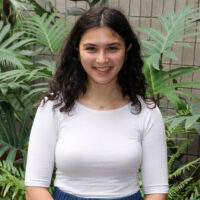
Auditing Database Tables in Breedbase
In an era when genetic sequencing and phenotyping are quickly producing vast amounts of data, database systems such as Breedbase are becoming increasingly necessary in genomics research. Websites that use the Breedbase ecosystem support a range of tasks related to crop breeding, which enact operations on the database in the form of insertions, updates, and deletions of data. Breedbase users requested that a record of these changes be made available on the website as a reference, for archival purposes and correction of errors. This feature was built by running a PostgreSQL database patch, which creates audit tables and inserts audit data every time a change is made to the database. These data, including the timestamp, type of operation, username of the account that committed the change, and state before and after the change, are displayed in dedicated audit pages and sections on the website. These webpages were designed using HTML and JavaScript/jQuery, and database connections are handled via a controller written in Perl. With the advent of audit tables in Breedbase, users will be able to handle their data more efficiently and securely. This is impactful as Breedbase programs mainly focus on staple crops such as cassava, which are integral to food security and economic prosperity.
The BTI REU program has been such a wonderful, educational, and memorable experience. Coming from a university where opportunities for plant science research are limited, it has been very exciting to join a bustling, vibrant plant research community. I am still honing my academic focus, and working in the Mueller Lab, a bioinformatics research group, has been helpful with learning about how computer science and biology intersect. It was also fascinating to observe how an interdisciplinary lab operates and collaborates with other labs at BTI and with partner institutions. Other aspects of the REU program, such as the weekly seminars and science communication workshops, have been very impactful for me in the way that I think about research. I think this research experience has equipped me with skills and perspectives that will be invaluable as I continue on my academic journey. I am so grateful to my mentors, Adrian Powell and Lukas Mueller, as well as Megan Truesdail and Delanie Sickler, for their efforts in coordinating this internship.
